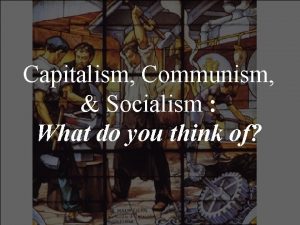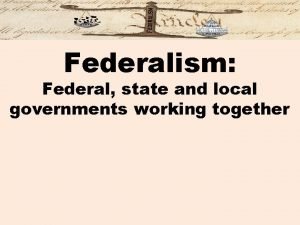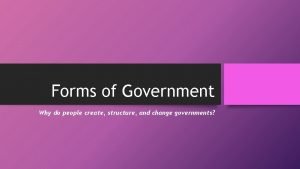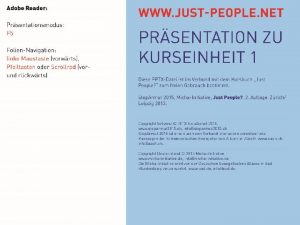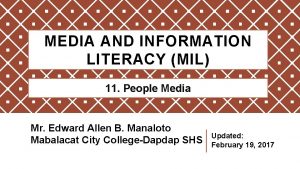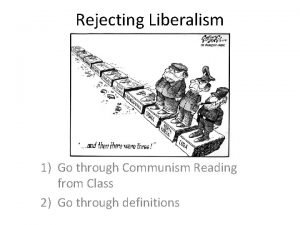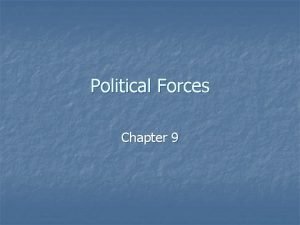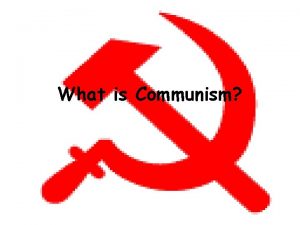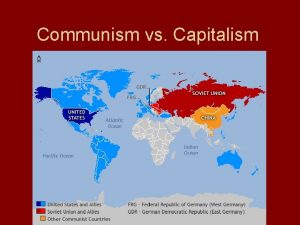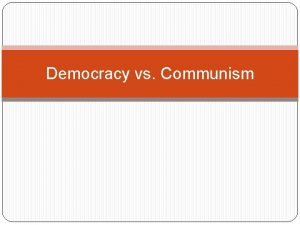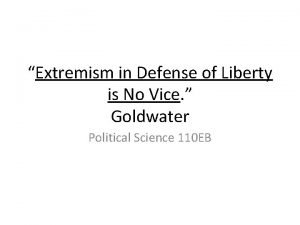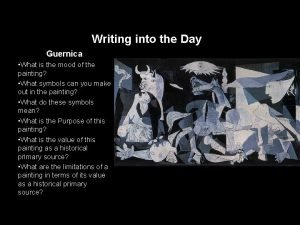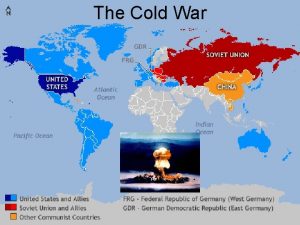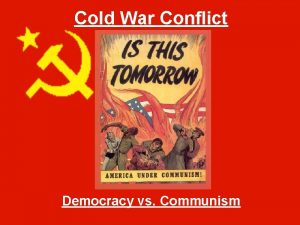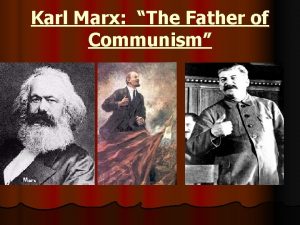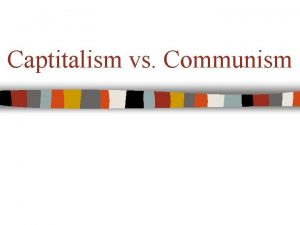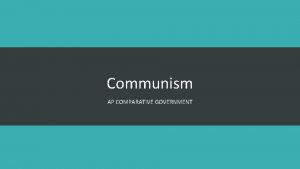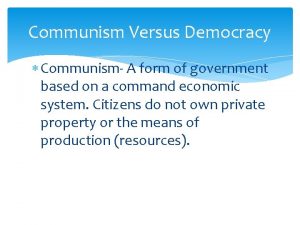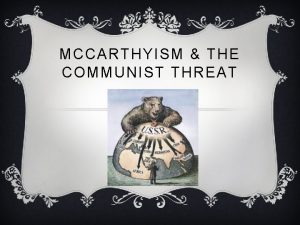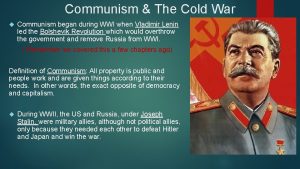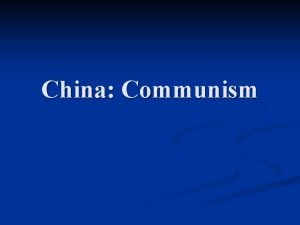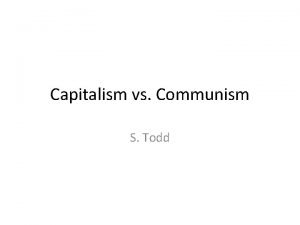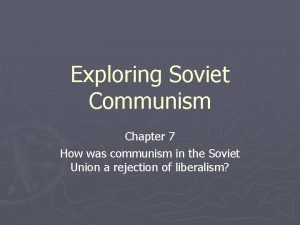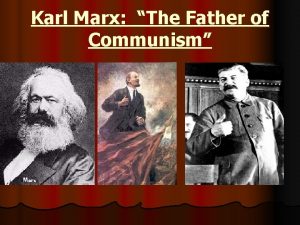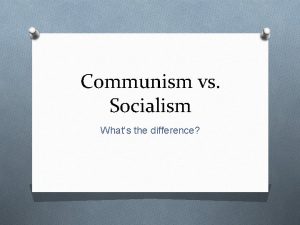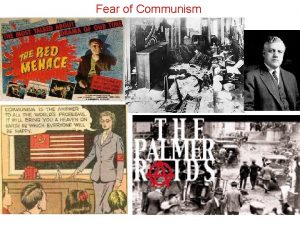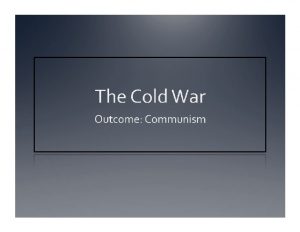What is Communism Communism a government where people



















- Slides: 19

What is Communism? Communism - a government where people shared work fairly and were paid equally. n The word “Communism” comes from the Latin word “Communis” which means common or belonging to all. n

The Beliefs of Communism The rich get richer. n The poor get poorer. n People wanted to make everything equal. n

The Goal of Communism n Goal: to get rid of social classes and make everything fair for everyone.

Do you agree? Or disagree? n Based off of what n If yes: explain you know, do you why think Communism n If no: what are is a good idea? potential dangers of Communism?

Capitalism n An economic and political system in which a country's trade and industry are controlled by private owners for profit.

Basics of Capitalism: Capitalism is said to promote economic growth and the overall standard of living. n In other words, capitalism creates CAPITAL (money) …and lots of it. n

Basics of Capitalism: Buyers (people) influence the market through their demand ability to purchase goods and services. There is very little government intervention. n Producers (businesses) are motivated by profit (money) and therefore create whatever goods people will buy. n In other words, the businesses run the economy, the government stays out of it! n

Do you agree? Or disagree? n Based off of what n If yes: explain you know, do you why think Capitalism is n If no: what are a good idea? potential dangers of Capitalism?

Problems with Communism: n Lack of individuality n Lack of choice n Equal treatment for all, even if you work harder than all the rest

Problems with Capitalism: n There is a growing gap between the rich and the poor. The rich get richer and the people who work for them remain poor.

So what is the best solution? n Do you believe that Communism or Capitalism is a better economic system? “Yes” = Capitalism n “No” = Communism n Be sure to you specific reasons to support your answer. n

Chinese Economy from WWII Present n After WWII, the Communist Party gained a lot of support. n Mao Zedong was the leader

Mao’s China n Mao Zedong used propaganda to spread the ideas of Communism and published “The Little Red Book” to teach people communist philosophies

The Great Leap Forward - 1958 In 1958 Zedong began a radical program called the Great Leap Forward to increase production in farms and factories n The Communists rushed to increase production and made people with little to no experience try to farm or produce steel in their backyards. n The steel was of poor quality making it useless and the poor weather resulted in a widespread famine. n An estimated 30 million people died of starvation n

The Cultural Revolution - 1966 n Create a society with no ties to the past: – Closed schools – Urged students to rebel against their students, these people were called “Red Guards” – Many Ancient Chinese buildings were destroyed – Anyone opposing Zedong was attacked by the young Red Guards – Finally, they began to turn against Zedong and were eventually imprisoned – Hundreds of thousands of people were killed – China was in turmoil!

The Four Modernizations - 1981 Deng Xiaoping became the new leader of China in 1981. Over the past 20 years, China has seen slow changes in their economy, allowing some free enterprise (meaning that the government does control ALL aspects of the economy) n Xiaoping led The Four Modernizations: n – – Farming Industry Science Defense

Modern China Today, China is a major economic power n China still only has one political party, the Chinese Communist Party, meaning there is no political freedom n In 1989, people gathered in Tiananmen Square in China’s capital to protest for democracy. The government sent in troops and tanks, 1000’s were killed or wounded. n

Modern China There is still a need for human rights reforms… n China today is one of the world’s greatest manufacturing countries n While the economy is slowly changing, there is not much room for political change given the fact that n there is only one political party allowed.

Inferring what you know… n Based off of what you know about Mao Zedong, what is the irony of this political cartoon, and what it is trying to communicate?
 Site:slidetodoc.com
Site:slidetodoc.com State and federal constitutions
State and federal constitutions Why do people create, structure, and change governments?
Why do people create, structure, and change governments? Transformed people transform people
Transformed people transform people Justpeople
Justpeople Differences between people as media and people in media
Differences between people as media and people in media People killin people dyin
People killin people dyin Utopian socialsim
Utopian socialsim What country was stalin born in
What country was stalin born in Communism
Communism Communism meaning simple
Communism meaning simple Communism vs command economy
Communism vs command economy Socialism v communism
Socialism v communism Democracy vs communism political cartoon
Democracy vs communism political cartoon Extremism in defense of liberty is no vice
Extremism in defense of liberty is no vice Fascism vs communism chart
Fascism vs communism chart карикатура
карикатура Communism
Communism Cold war communism vs democracy
Cold war communism vs democracy What are the characteristics of communism
What are the characteristics of communism
